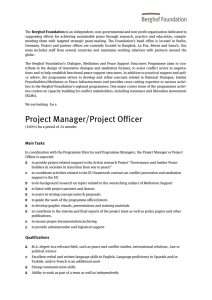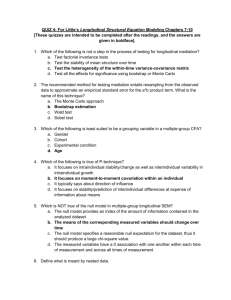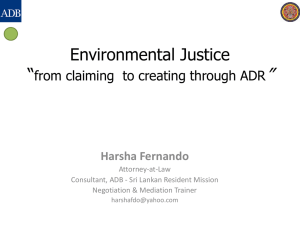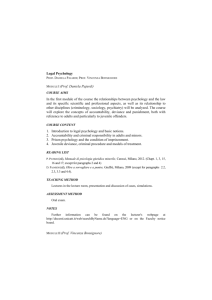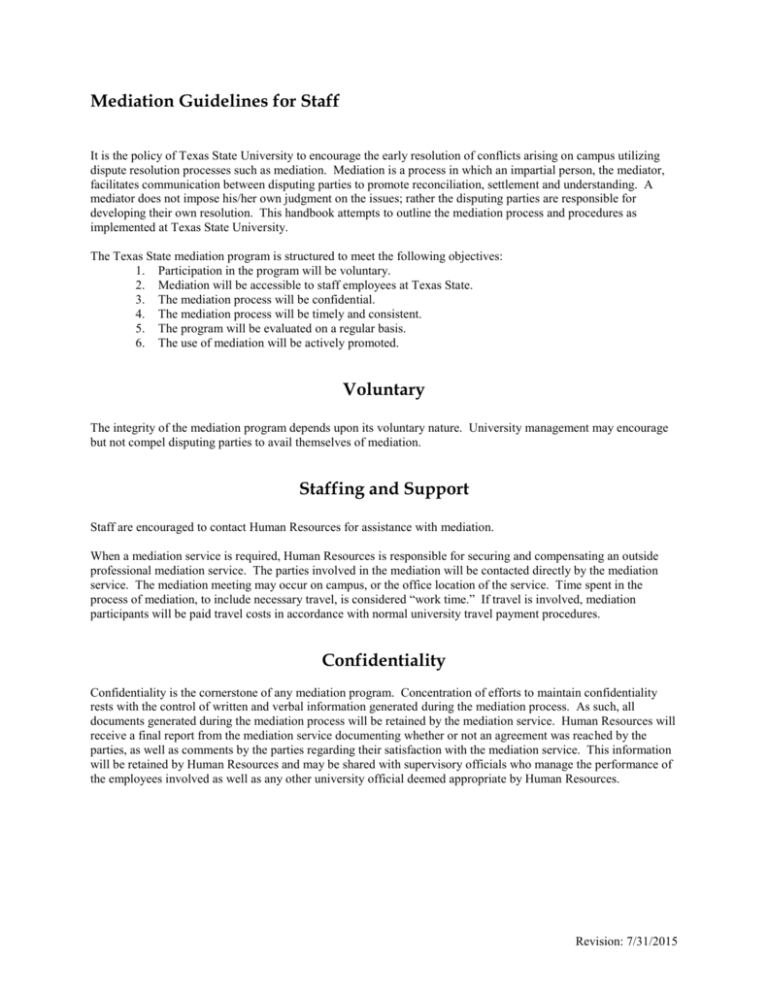
Mediation Guidelines for Staff
It is the policy of Texas State University to encourage the early resolution of conflicts arising on campus utilizing
dispute resolution processes such as mediation. Mediation is a process in which an impartial person, the mediator,
facilitates communication between disputing parties to promote reconciliation, settlement and understanding. A
mediator does not impose his/her own judgment on the issues; rather the disputing parties are responsible for
developing their own resolution. This handbook attempts to outline the mediation process and procedures as
implemented at Texas State University.
The Texas State mediation program is structured to meet the following objectives:
1. Participation in the program will be voluntary.
2. Mediation will be accessible to staff employees at Texas State.
3. The mediation process will be confidential.
4. The mediation process will be timely and consistent.
5. The program will be evaluated on a regular basis.
6. The use of mediation will be actively promoted.
Voluntary
The integrity of the mediation program depends upon its voluntary nature. University management may encourage
but not compel disputing parties to avail themselves of mediation.
Staffing and Support
Staff are encouraged to contact Human Resources for assistance with mediation.
When a mediation service is required, Human Resources is responsible for securing and compensating an outside
professional mediation service. The parties involved in the mediation will be contacted directly by the mediation
service. The mediation meeting may occur on campus, or the office location of the service. Time spent in the
process of mediation, to include necessary travel, is considered “work time.” If travel is involved, mediation
participants will be paid travel costs in accordance with normal university travel payment procedures.
Confidentiality
Confidentiality is the cornerstone of any mediation program. Concentration of efforts to maintain confidentiality
rests with the control of written and verbal information generated during the mediation process. As such, all
documents generated during the mediation process will be retained by the mediation service. Human Resources will
receive a final report from the mediation service documenting whether or not an agreement was reached by the
parties, as well as comments by the parties regarding their satisfaction with the mediation service. This information
will be retained by Human Resources and may be shared with supervisory officials who manage the performance of
the employees involved as well as any other university official deemed appropriate by Human Resources.
Revision: 7/31/2015
The Mediation Process
Cases may come to mediation from a variety of sources. Disputing parties may contact Human Resources directly
(self referral) and be scheduled for intake. Referral may also be made by any staff member. Such referrals are
accepted at the discretion of Human Resources. Human Resources may require the disputing parties to contact the
HR office directly.
After a case has been referred to Human Resources, the intake coordinator will determine if both parties are willing
to undertake the mediation process. The Human Resources office will contact the potential clients within five days
of receiving the referral to conduct the intake interview. During the interview session(s), the intake coordinator will:
provide the clients with a definition of mediation and discuss the mediation program
insure that the clients understand the voluntary and confidential nature of mediation
inform clients of the need for all parties to be willing to work toward an agreement
remind clients that the mediator will remain neutral and cannot provide an arbitrary decision through
the process
inform the clients that at the beginning of the mediation hearing they will be given the opportunity to
end the mediation if, for any reason, they are uncomfortable with the process
gather information necessary to complete the Intake/Referral form
The Intake/Referral form is considered highly confidential and will be handled only by Human Resources, and the
mediation service. The intake coordinator will then contact the mediation service and forward to them the intake
form. Upon receipt of the intake form, the mediation service provider will contact the parties involved and initiate
the mediation process.
The intake coordinator is responsible for determining if an issue requested for mediation meets the requirements for
mediation under the provisions of UPPS 04.04.41, Staff Employee Mediation and Grievance Policy, and the
mediation process guidelines. Any exceptions to this determination must be approved by the Vice President for
Finance and Support Services. Most work place related issues outside those specifically addressed by UPPS
04.04.46 and The Texas State University System Sexual Harassment Policy may be appropriate for mediation.
Similarly, violations of federal and state law, regent’s rules, and university policy are usually not appropriate for
mediation. The following are examples of disputes appropriate for mediation:
1. Employment matters
2. Discrimination
3. Harassment
The following are examples of disputes deemed inappropriate for mediation:
1. Violation of a Regents Rule, such as:
a. Illicit use, possession, sale or distribution of prohibited drugs
b. Use, possession, sale or distribution of firearms, etc.
2. Violation of a university policy
3. Disputes involving sexual harassment – such disputes should be immediately referred to the Office of
Equity and Access in accordance with The Texas State University System Sexual Harassment Policy
Revision: 7/31/2015




